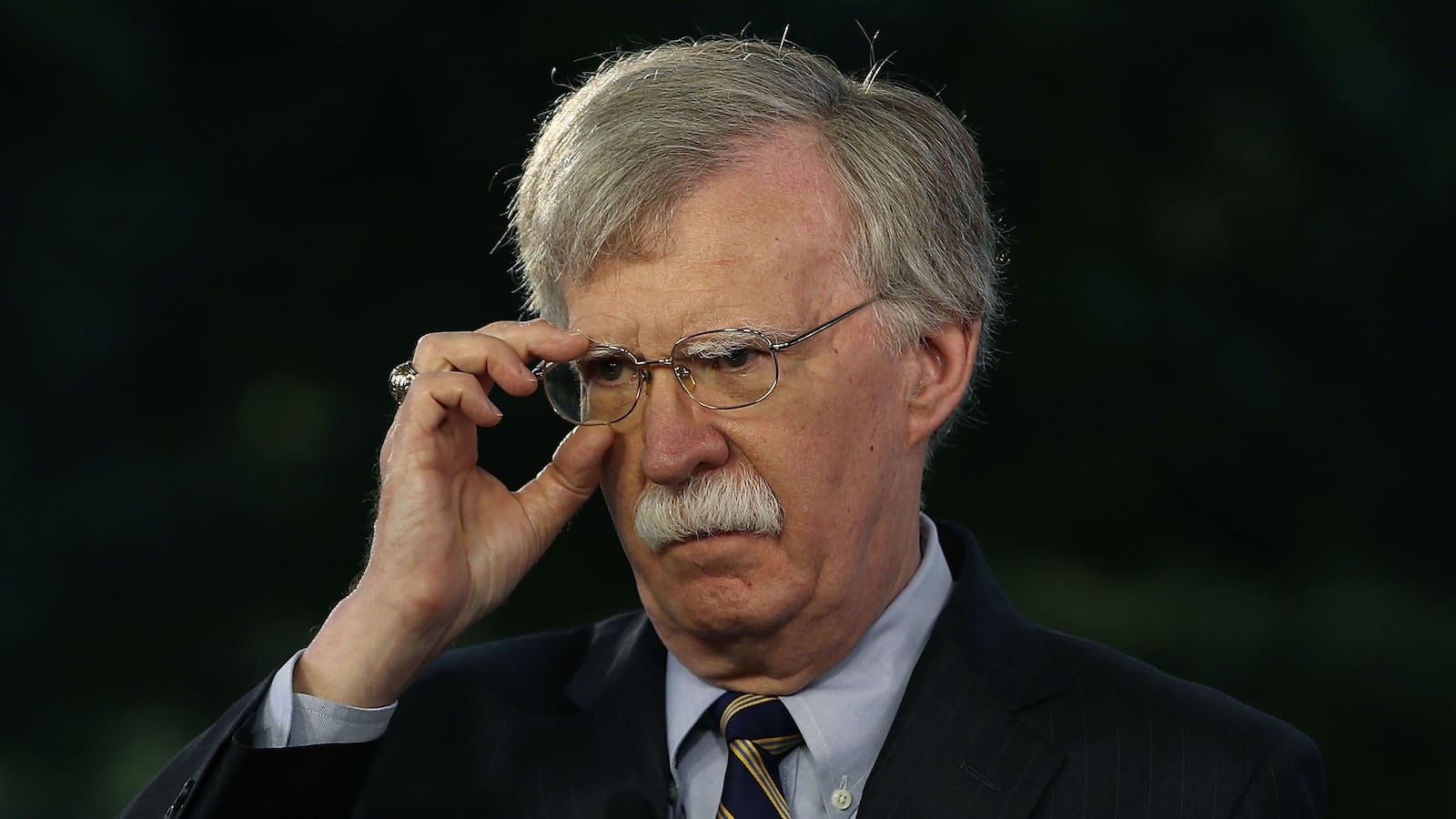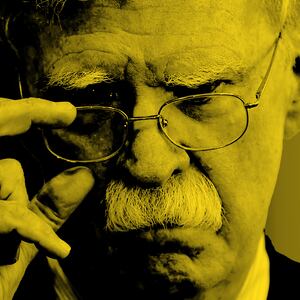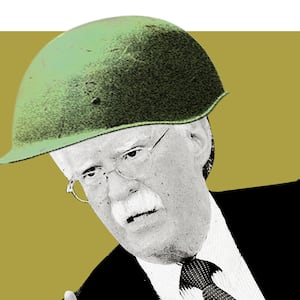The news that John Bolton was out at the White House was not actually news at all. In fact it was more akin to when Chevy Chase used to announce on Saturday Night Live that “Generalissimo Francisco Franco is still dead.” Bolton effectively left the job months ago, and even when he had it, as with Franco in his last years, the post was largely ceremonial. After all, being the chief adviser to a man who regularly boasts that he does not need or take advice is not much of a job, is it?
For that reason and many others, this was a marriage that was doomed from the start. While Trump and Bolton are both bullies who don’t have much use for the international system, the similarities end there. Trump likes to talk tough but seldom follows through. He is first, last and always a Trumpist, seeking to do what he feels will bring him the most benefit personally.
Bolton is an ideologue. His views are extreme, but unlike Trump’s they are part of a coherent, albeit dangerous, worldview. He believes tough talk must be backed up by tough action and that obstinate opponents often must be defeated by force. That is where he and Trump parted ways.
Both were perfectly happy to talk trash about North Korea, Iran, or the Taliban. But when Trump concluded he might get more political credit for deals with each of these, he was not just eager to negotiate, he was ready to take any deal he could get. Such capitulation was anathema to Bolton, and it resulted in the estrangement of the two men.
Signs were everywhere long ago that Bolton was national security adviser in name only. For example, earlier this summer, when Trump headed off to his most recent schmoozefest with Kim Jong Un, Bolton was dispatched to, of all places, Mongolia, a location often used as a punch line in old jokes about being in the middle of nowhere.
More recently, as reported in The Washington Post, Bolton was excluded from a meeting regarding the future of America’s involvement in Afghanistan. The notion that a national security adviser would not be present at a meeting on such a momentous national security issue would be unthinkable in any other administration. It was yet another sign that Bolton was already toast. Over the past few months, he has become the Cheshire Cat of national security, gradually disappearing from view, part by part, until all that was left hanging in the air was his moustache, and today, that too disappeared from view.
It was also a sign that a fairly substantial anti-Bolton constituency had emerged in the Trump Administration. There had always been one, of course. Just think back to then Secretary of Defense Jim Mattis’ chilly welcome for Bolton when he replaced H.R. McMaster at the NSC. Or consider the picture of Secretary of State Mike Pompeo and Treasury Secretary Steve Mnuchin discussing Bolton’s departure shortly after it was announced. Their expressions were downright giddy and talk of Pompeo-Bolton tension has been rife for a long time.
Of course, Pompeo is the last man standing amid Trump’s national security carnage. His first secretary of state, Rex Tillerson, his first secretary of defense, Jim Mattis, his first director of national intelligence, Dan Coats, and his first three national security advisers, Michael Flynn, McMaster, and Bolton, are all gone (Flynn as a convicted felon). What has been Pompeo’s secret? As reported by The New Yorker’s Susan Glasser, according to one former U.S. ambassador, “He’s like a heat-seeking missile for Trump’s ass.” In other words, Trump doesn’t want advisers, he wants sycophants, willing participants in the kind of cringe-inducing Dear Leader love-fests that have been seen during Trump Cabinet meetings and whenever Vice President Mike Pence opens his mouth.
Another sure warning sign for Bolton was the fact that despite his “assistant to the president” title and lofty role at the NSC, he was at best the fourth or fifth most important person in the White House itself on foreign policy issues. Worse, ahead of him were four people with absolutely no foreign policy or national security experience or, for that matter, any intellectual or moral credibility—Trump himself, of course, followed by his daughter Ivanka, her husband Jared Kushner, and, on border and immigration issues, future defendant at the Hague Stephen Miller.
Speaking of the Hague, it must be noted that while Bolton’s role was ill-fated from the start and despite his failure to even manage any sort of meaningful inter-agency process that might have given him a bit more in-house clout, he did have an impact. His actively anti-UN agenda—which included pulling the United States out of the UN Human Rights Council, putting a visa ban on the prosecutor of the International Criminal Court, and seeking to block U.S. funding for key UN programs, dovetailed with Trump’s nationalism and distrust of international institutions. He did real damage to the institution (the UN) he once served as ambassador.
He also did further damage to the international order by actively pushing to end Ronald Reagan’s signature Intermediate Nuclear Forces (INF) treaty, and he was well on his way to doing the same with the New START Treaty. So he won’t leave empty-handed. He did do his part to undercut the international order that American administrations have labored for three-quarters of a century to create.
With Bolton gone, the next move for the Trump administration will be to make history when it appoints his replacement as national security adviser. It will mark the first time since the National Security Council was established in 1947 that a president will have had more than three national security advisers in a single term.
Finding the right blend of ambition and willingness to debase oneself won’t be easy, of course, especially given the scorched-earth approach Trump has taken to his own inner circle when they cease to be useful to him. But the White House is in Washington, a city full of people willing to trade their spines and reputations for an office in the West Wing, and the national security adviser’s ground-floor corner office is a particularly good one.
That said, as with the stories focused on Bolton’s departure, focusing on who sits in that office will miss the reality of the Trump administration. The real national security adviser will be the same person it has been since the beginning, the undisputed worst person to ever hold the office, the architect of a foreign policy that has combined defeats with service to our most dangerous enemies, undermining our international standing, weakening alliances and compromising our most cherished values. That is, of course, the one person Donald Trump trusts and listens to: Donald Trump.
It has been said of defendants seeking to represent themselves in court that he who has himself for a lawyer has a fool for a client. History also suggests that a president who thinks he can be his own national security adviser—failing to consult and even actively distrusting the huge resources of the U.S. government—has a fool for his commander-in-chief.








